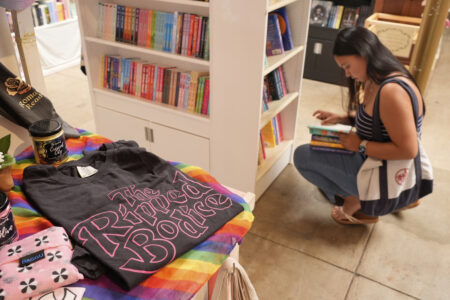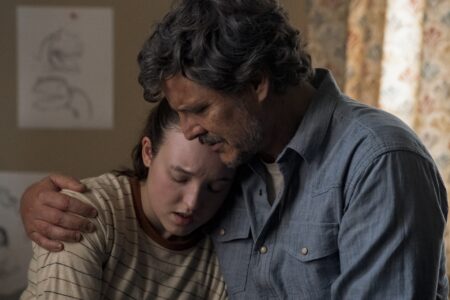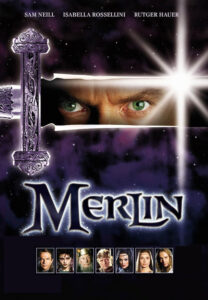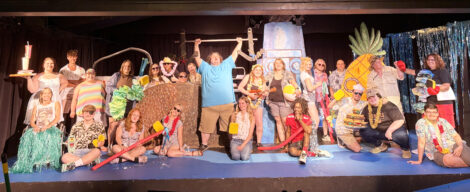‘Merlin’ as timeless as the tale it’s based on
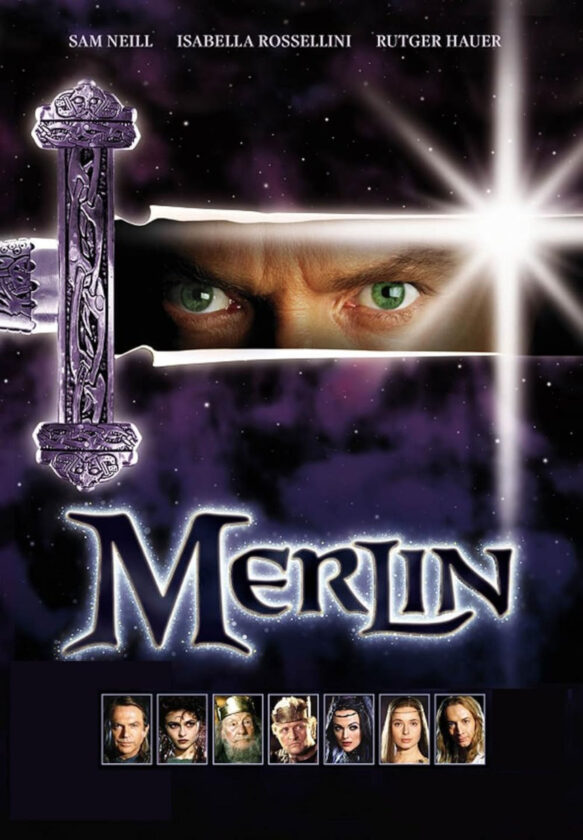
Due to the ever-changing nature of entertainment, it may be hard for some younger readers to understand that there used to be a time where most television shows were more than 20 episodes a season, with frequently at least four or five seasons of hour-long episodes.
Things shorter than that — but longer than movies — were called mini-series, which were more or less a phenomenon of the 1980s and 90s.
Nowadays, it seems like most everything fits into that definition — but back then, it was unusual, and mini-series were frequently star-studded, prestige affairs.
Consider “Merlin,” a 1998 mini-series starring Sam Neill as the eponymous wizard, and an absolutely stacked supporting cast featuring the likes of Miranda Richardson (playing a dual role as both the Lady of the Lake AND Queen Mab), Isabella Rossellini, Martin Short, Helena Bonham Carter, Rutger Hauer, James Earl Jones and a very young Lena Headey, long before “Game of Thrones.”
Now, let’s slay the dragon in the room right off the bat: don’t watch this if you’re an Arthurian purist. It does an admirable job of hitting the most significant plot points, but takes some liberties in other areas, and, ultimately, is “just” a three-hour long mini-series — and so really getting into the minutiae is a bit beyond its scope.
But “Merlin” also doesn’t need to.
The story, you may be surprised to learn, is focused on Merlin — his birth, upbringing, maturity and, eventually, old age. Arthur and his Knights figure into the story, but only really to the extent that Merlin was involved in their origins.
Instead, the mini-series spends most of its time on the conflict between Merlin and his sort-of-mother, Queen Mab, a fading British Isles deity who assists in the birth and creation of Merlin in an attempt to bring people back to the old ways as more and more Britons turn to Christianity.
There’s a whole lot to unpack here, but instead of waxing on for a few hundred words about the real historical background of all of this, I am going to focus on how this is delivered in the show.
Something I very much appreciated upon my rewatch (this show was very formative for me many moons ago) was just how much care they actually put into both the historical setting and also the mythos of Mab herself.
Rather than the more typical middle ages, Romantic Arthurian stylings — inspired predominantly by later French writers — “Merlin” takes a more Iron Age approach, complete with the significance of the repeated waves of invasions of Britain. It kind of warps and plays around with this in some spots, especially later on, but it still gets points from me for at least trying.
As for Mab, something that I did not appreciate as a youngster myself was the nuance that Richardson manages to weave into the role. She is clearly set up throughout as the primary antagonist, which, fair enough. But she is portrayed with a brilliant amount of angst and compassion — you can really watch her creeping desperation and lunacy over the course of the mini-series set in and accelerate. Early on she’s almost sympathetic — nobody wants to be forgotten. But the actions she takes from that starting point and her growing malevolence set her up to be a compelling villain.
Plus, they had her living in a hollow hill, which absolutely tickled me. Seeing actual, moderately lore-accurate depictions of the sidhe is insanely rare in media, and I loved it. It’s a sign of the amount of care and love that went into this mini-series.
All the care and love in the world, of course, cannot save its really poorly-aged special effects. Well, the computer-generated ones, at least. There are some practical effects and those are well handled and well shot, but the digital stuff is…rough.
Luckily, when you have a roster of actors like this one, they can do a good job distracting you from the horrible CGI.
And I’ll confess a certain amount of nostaglia goggles here. Like I said above, this show was very formative to me in a lot of ways. Heck, there’s a scene a good ways in where Arthur and Merlin are riding along talking and they come upon a snail crossing the path in front of them, and Merlin has them pause and wait for the snail as, as he says, “he has the right of way” — which is something that I still frequently think about when I’m out hiking. Having that basic respect for nature and understanding that we are but a part of the world we live in is something that really stuck with me.
There’s some fairly adult concepts in the show, but they’re taken directly from lore — things like Lancelot and Guinevere’s adultery, the conception of Mordred via the deceptive, incestuous relations of Arthur and Morgan le Fay, and so forth, so anyone with even a passing knowledge of Arthurian legend will be just fine here. There’s basically no gore or anything like that — I mean, it aired on NBC in 1998. It’s pretty tame.
“Merlin” won several Emmy awards and was nominated for four Golen Globes, although it didn’t win any. It’s rated at 7.1/10 on IMDb, and is available for streaming on Amazon Prime, Pluto, Tubi, Roku and a few others.
——
Arianna McKee is the Design and Editorial editor for The Express.



